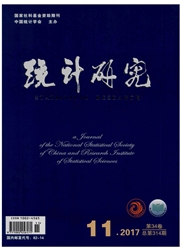

 中文摘要:
中文摘要:
关于工资上涨的经济影响,相对于区域层面对低劳动成本优势的持续关注,面向企业的经验研究至今不多。本文从价格直接效应、雇佣规模效应、结构替代效应三方面分解工资水平影响企业经营成本的传导路径,运用浙江省第三次经济普查形成的制造业企业数据模拟各路径上的实际影响。研究认为:工资作为劳动要素的价格,直接成本效应是普遍而显著的,但当前工资水平尚未对企业雇佣规模构成广泛影响;人力资本水平显著影响着企业是否能以资本和技术等替代劳动,形成结构替代效应化解直接成本压力。面向未来工资继续上涨的必然趋势,政府应着力加强人力资本投资积累以改善劳动供给,加强劳动力市场监管以提升劳动要素效率。
 英文摘要:
英文摘要:
Comparing to the popular studies on the advantage of low labor cost, there is very little empirical research on the economical impact of raising salary from enterprise's perspective. This article studies the cost impact on enterprises by breaking down the salary impact to three components: direct price effect, employment scale effect and structural adjustment effect. The impact on various prorogation paths is estimated using the manufacturing industry's data collected from the third economic census in ZheJiang province. It finds that: the direct cost effect is significant and universal, as salary is the price of labor. However, the current salary level has a limited impact on employment scale. The human capital accumulated is a significant factor in enterprises'structural adjustment with seeking help from capital and technology to relief the pressure of increasing labor cost. With the unavoidable trend of increasing salary level, the government should emphasize on labor investment to improve labor supply, and reinforce the supervision on labor market to increase the labor efficiency.
 同期刊论文项目
同期刊论文项目
 同项目期刊论文
同项目期刊论文
 期刊信息
期刊信息
